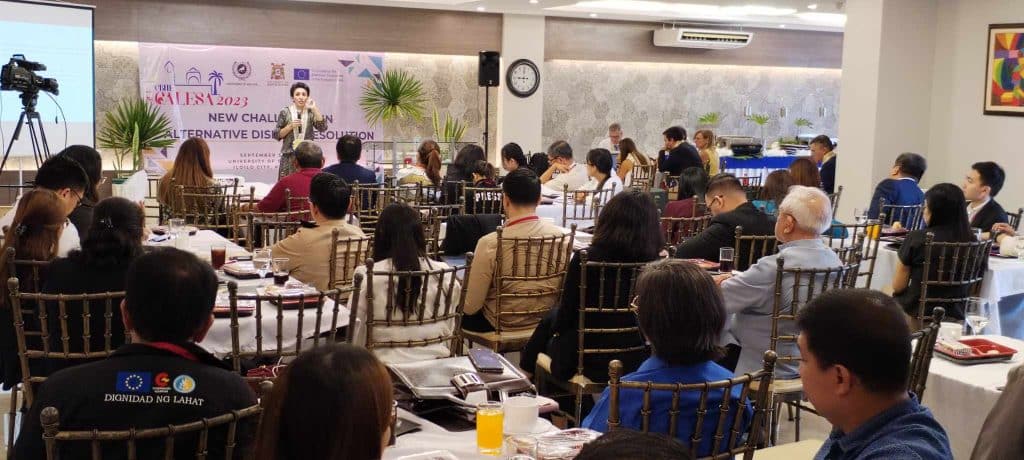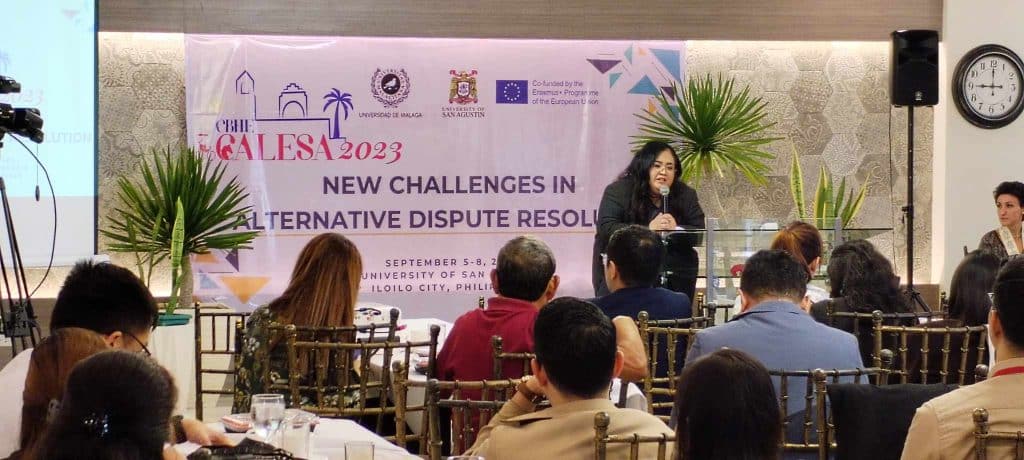

On July 19, 2023, the University of San Agustin once again conducted its CALESA Seminar in collaboration with Universidad de Malaga, Spain. That was the third leg of a seminar series and the last two series focusing on law.
On its final leg, the CALESA Project will focus on the “New Challenges in Alternative Dispute Resolution”. The event will be this September 5-8, 2023, at the 6F of Hotel Sta. Monica, at the University of San Agustin.
The event will be graced by the associate Professor of Procedural Law at the University of the Nova de Lisboa, the Subdirector of CEDIS, and the Coordinator of Nova Dispute Resolution Forum, Dr. Joao Pedro Pinto-Ferreira.
The project, ADR, is in the equation between the quest for Justice of jus naturalism and the defense of legal certainty of methodological positivism. Project Erasmus and CBHE CALESA Coordinator Dr. José Manuel De Torres Perea, a constant guest in the Philippines is looking forward to a productive outcome on the challenges of ADR.
Alternative Dispute Resolution (ADR) in the Philippines, like in many other countries, faces several challenges that can hinder its effective implementation and widespread adoption. ADR methods, such as mediation, arbitration, and conciliation, are promoted as efficient and cost-effective ways to resolve disputes outside the traditional court system. However, these challenges can limit their effectiveness:
1. Lack of Awareness and Understanding:
Many individuals and businesses in the Philippines are unaware of ADR options or do not understand how they work. This lack of awareness can lead people to opt for traditional litigation, even when ADR might be more suitable for their needs.
2. Cultural Resistance:
Filipino culture often strongly emphasizes authority and hierarchy, which can create resistance to ADR processes that rely on voluntary agreement and negotiation. Some parties may prefer the perceived certainty of court judgments over the flexibility of ADR.
3. Limited Access to ADR Services:
Access to ADR services can be limited, particularly in rural areas, where mediation and arbitration facilities may be scarce. This limits the ability of many individuals and small businesses to utilize ADR.
4. Quality of ADR Providers:
The effectiveness of ADR often depends on the skills and competence of the mediators or arbitrators involved. There can be concerns about the qualifications and impartiality of ADR providers in some cases.
5. Enforcement of ADR Awards:
While arbitration awards are generally enforceable in the Philippines, there can still be difficulties in ensuring compliance. Parties may resort to litigation to enforce awards, defeating the purpose of ADR.
To address these challenges, the Philippines should consider promoting ADR through public awareness campaigns, improving the training and certification of ADR practitioners, expanding access to ADR services, and further developing its legal and regulatory framework for ADR. Additionally, cultural attitudes towards ADR may evolve as more success stories are shared, and people become more familiar with its benefits. Thus, it is a perfect venue to open the communication channel with other countries to understand how we could improve ADR in the Philippines.

